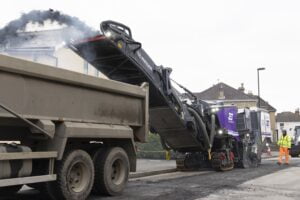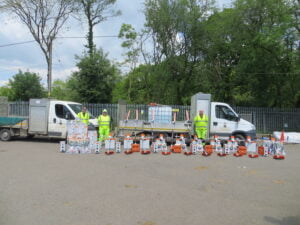Too many local authorities are failing to take enough action to reduce emissions from the transport sector, according to Isaac Beevor, co-director of Climate Emergency UK.
The organisation launched the Council Climate Action Scorecards last week, the first ever holistic assessment of all UK local authorities’ climate action.
“At Climate Emergency UK we truly believe in the power of local government to help our communities reach net zero and, despite national barriers, councils can do more to reduce emissions,” said Mr Beevor.
The scorecards, covering up to 91 questions across seven sections, show the best practice in the sector, highlighting the action councils have done which can help councils learn from each other where comparable climate policy or programmes exist in another local authority, according to a Local Government Chronicle report.
“While there were some standout performers in individual sections, the scorecards demonstrated there is a long way to go for all councils in the race to reach net zero and to embed climate action into every service and function,” added Mr Beevor.
According to the organisation’s report, the sector where councils are lagging behind is transport, with an average score of 16% across all UK councils. What is most shocking is that councils are scoring poorly on even the most achievable actions.
For example, only 19% of UK councils have electric vehicles making up 10% or more of their total vehicle fleet. And it doesn’t get any better for the actions that have a greater impact on emissions, which are often more politically difficult.
Local authorities must stop building or expanding new roads and airports
Only 17 councils have 30 or more school streets in their area and Nottingham City Council is still the only UK council that has been brave enough to implement a workplace parking levy.
Councils need to get serious about decarbonising transport in their area. Local authorities must stop building or expanding new roads and airports, with 14 of the 21 county councils having built new roads in the UK since 2019.
The first step is always to stop committing harm, as seen in West Yorkshire CA’s connectivity infrastructure plan, which states: “There will be a pause on developing new road schemes, unless they bring equitable benefits for all road users and there is a plan to mitigate impacts on our carbon target.”
Local authorities also have the powers to reduce emissions from the transport sector and councils know the solutions. In a 2022 research article that ranked the most effective ways to get cars out of cities, introducing workplace parking levies and removing free parking were two of the top five.
Yet only 12 councils — for example Camden LBC — have introduced residential parking permits across their whole area. Of course, as well as discouraging short trips by car, the revenue raised by these actions can be reinvested into improving public transport and/or active travel infrastructure, creating a virtuous cycle.
To replace a council fleet, councils can choose to only buy electric vehicles as replacements for older vehicles, as Leeds City Council is doing. To encourage children to walk and cycle to school, while tackling congestion, councils should also introduce a school streets programme as Merton and Lewisham LBCs have done.
View the full report and the Council Climate Action Scorecards at councilclimatescorecards.uk




















